Ex: http://empire-and-revolution.blogspot.com
The remarkable rise of the Scottish National Party (SNP), which is now a liberal-left party led largely by 1968 leftists, masks the ethno-nationalist roots of the party and the broader ethno-nationalist undercurrent of the Scottish Nationalist movement as a whole. In this article, we intend to explore some of the personalties that made up this early movement, their activities and detail some of their ideas that influenced the early SNP and which would make the likes of Alex Salmond, the current leader of the SNP, cringe in embarrassment, even though they make up a substantial section of the SNP's early history and political direction.
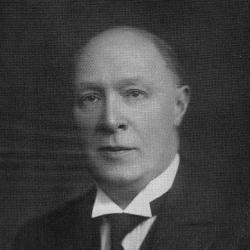 The first Scottish nationalist to contest a Westminster parliamentary seat in Scotland was the journalist, poet and folklorist Lewis Spence in January 1929. He polled 842 votes (a worthy 4.5% of the vote) in the Midlothian and Peebles Northern constituency which was won by Labour in a three-cornered fight with Spence and the Conservatives. Spence's Scottish National Movement had combined in 1928 with other Scottish Home Rule organisations, including the Gaelic revivalist Ruariridh Erskine's Scots National League, to form the National Party of Scotland (NPS). Later in 1934, the NPS amalgamated with the more conservative Scottish Party to form the modern-day Scottish National Party which exists today under the capable leadership of Alex Salmond.
The first Scottish nationalist to contest a Westminster parliamentary seat in Scotland was the journalist, poet and folklorist Lewis Spence in January 1929. He polled 842 votes (a worthy 4.5% of the vote) in the Midlothian and Peebles Northern constituency which was won by Labour in a three-cornered fight with Spence and the Conservatives. Spence's Scottish National Movement had combined in 1928 with other Scottish Home Rule organisations, including the Gaelic revivalist Ruariridh Erskine's Scots National League, to form the National Party of Scotland (NPS). Later in 1934, the NPS amalgamated with the more conservative Scottish Party to form the modern-day Scottish National Party which exists today under the capable leadership of Alex Salmond.
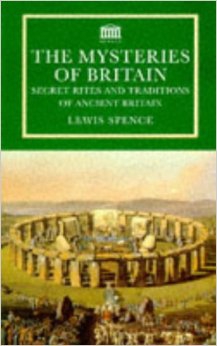 An idea of what animated Lewis Spence's political thought can be extracted from his 1905 book The Mysteries of Britain: Secret Rites and Traditions of Ancient Britain (reprinted in 1994 by Senate). The book is dripping with erudition and politically incorrect racial and ethnic analysis relating to the origins of the pre-Christian native religion of the ancient British Isles and the indigenous people of those islands who practised it. Spence concludes: "In no individual born in these islands does there not flow the blood of the Druid priests and seers, and I confidently rely on British mystics, whatever their particular predilections, to unite in this greatest of all possible quests, the restoration of our native Secret Tradition," arguing that "we Britons are much too prone to look for excellence outside of the boundaries of our own island" and "that we should so weakly rely on alien systems of thought while it is possible for us to re-establish our own is surely miserable."
An idea of what animated Lewis Spence's political thought can be extracted from his 1905 book The Mysteries of Britain: Secret Rites and Traditions of Ancient Britain (reprinted in 1994 by Senate). The book is dripping with erudition and politically incorrect racial and ethnic analysis relating to the origins of the pre-Christian native religion of the ancient British Isles and the indigenous people of those islands who practised it. Spence concludes: "In no individual born in these islands does there not flow the blood of the Druid priests and seers, and I confidently rely on British mystics, whatever their particular predilections, to unite in this greatest of all possible quests, the restoration of our native Secret Tradition," arguing that "we Britons are much too prone to look for excellence outside of the boundaries of our own island" and "that we should so weakly rely on alien systems of thought while it is possible for us to re-establish our own is surely miserable."
He called for the "restoration of the entire fabric of British native mysticism" concluding "the missing stones of that fabric lie directly beneath our feet in the soil of our own island, and it depends entirely upon our patriotism and our vigilance whether they shall be recovered and once more fill the gaps and seams in the ancient edifice of British arcane wisdom."
In contrast to the electoral approach of the NPS/SNP, which had mixed results, a group of militant ethno-nationalists led by the English-born Wendy Wood, a founder member of the NPS, via Lewis Spence's Scottish National Movement, decided that a non-party approach would be more effective and left the infant SNP to engage in more direct militant action. This involved rowdy protests and demonstrations against all forms of Unionism as well as speaking and propaganda tours across Scotland advocating a Scottish cultural revival and political independence. In the 1930s, she founded the youth group, Scottish Watch, which later became, in 1949, the Scottish Patriots, which existed until her death in 1981 boasting a few thousand members to rival the SNP in popularity amongst Scottish ethno-nationalists.
Wood is also cited in the Preface to Spence's Mysteries of Britain book where he states: "I cannot close without expressing my sincere thanks to Miss Wendy Wood for the eight excellent drawings which she has made for this book. Deeply imbued with the Keltic spirit and versed in the details of Keltic antiquity, she has infused them with the richness of Keltic imagination and mysticism."
Gillies also advocated close links to Irish nationalists and was involved in the establishment of a volunteer force called Fianna na h-Alba that was ready to use armed force to win Scottish independence. However, following advice by the legendary Irish nationalist leader, Michael Collins, the plan was abandoned after he argued in a letter that the militant Scottish nationalists "do not appreciate the particular difficulties they are up against," particularly with regards the lack of significant public support in Scotland for such action and the relative strength of the British state north of the border compared to the situation in Ireland.
Lewis Spence and the Mysteries of Britain
 The first Scottish nationalist to contest a Westminster parliamentary seat in Scotland was the journalist, poet and folklorist Lewis Spence in January 1929. He polled 842 votes (a worthy 4.5% of the vote) in the Midlothian and Peebles Northern constituency which was won by Labour in a three-cornered fight with Spence and the Conservatives. Spence's Scottish National Movement had combined in 1928 with other Scottish Home Rule organisations, including the Gaelic revivalist Ruariridh Erskine's Scots National League, to form the National Party of Scotland (NPS). Later in 1934, the NPS amalgamated with the more conservative Scottish Party to form the modern-day Scottish National Party which exists today under the capable leadership of Alex Salmond.
The first Scottish nationalist to contest a Westminster parliamentary seat in Scotland was the journalist, poet and folklorist Lewis Spence in January 1929. He polled 842 votes (a worthy 4.5% of the vote) in the Midlothian and Peebles Northern constituency which was won by Labour in a three-cornered fight with Spence and the Conservatives. Spence's Scottish National Movement had combined in 1928 with other Scottish Home Rule organisations, including the Gaelic revivalist Ruariridh Erskine's Scots National League, to form the National Party of Scotland (NPS). Later in 1934, the NPS amalgamated with the more conservative Scottish Party to form the modern-day Scottish National Party which exists today under the capable leadership of Alex Salmond.  An idea of what animated Lewis Spence's political thought can be extracted from his 1905 book The Mysteries of Britain: Secret Rites and Traditions of Ancient Britain (reprinted in 1994 by Senate). The book is dripping with erudition and politically incorrect racial and ethnic analysis relating to the origins of the pre-Christian native religion of the ancient British Isles and the indigenous people of those islands who practised it. Spence concludes: "In no individual born in these islands does there not flow the blood of the Druid priests and seers, and I confidently rely on British mystics, whatever their particular predilections, to unite in this greatest of all possible quests, the restoration of our native Secret Tradition," arguing that "we Britons are much too prone to look for excellence outside of the boundaries of our own island" and "that we should so weakly rely on alien systems of thought while it is possible for us to re-establish our own is surely miserable."
An idea of what animated Lewis Spence's political thought can be extracted from his 1905 book The Mysteries of Britain: Secret Rites and Traditions of Ancient Britain (reprinted in 1994 by Senate). The book is dripping with erudition and politically incorrect racial and ethnic analysis relating to the origins of the pre-Christian native religion of the ancient British Isles and the indigenous people of those islands who practised it. Spence concludes: "In no individual born in these islands does there not flow the blood of the Druid priests and seers, and I confidently rely on British mystics, whatever their particular predilections, to unite in this greatest of all possible quests, the restoration of our native Secret Tradition," arguing that "we Britons are much too prone to look for excellence outside of the boundaries of our own island" and "that we should so weakly rely on alien systems of thought while it is possible for us to re-establish our own is surely miserable." He called for the "restoration of the entire fabric of British native mysticism" concluding "the missing stones of that fabric lie directly beneath our feet in the soil of our own island, and it depends entirely upon our patriotism and our vigilance whether they shall be recovered and once more fill the gaps and seams in the ancient edifice of British arcane wisdom."
|
|
| Wendy Wood |
Wood is also cited in the Preface to Spence's Mysteries of Britain book where he states: "I cannot close without expressing my sincere thanks to Miss Wendy Wood for the eight excellent drawings which she has made for this book. Deeply imbued with the Keltic spirit and versed in the details of Keltic antiquity, she has infused them with the richness of Keltic imagination and mysticism."
Scottish cultural and social nationalism
The leader of the Scots National League, Ruairidh Erskine, despite his aristocratic lineage, had close links to important Scottish socialist figures, such as John Maclean, the influential Scottish Marxist and a left-wing nationalist. However, despite his support for land reform and other socialist measures, Erskine was regarded as a reactionary figure by many on the burgeoning socialist left in Scotland because of his deep commitment and support for a Scottish Gaelic cultural revival, including everyday use and development of the language. Erskine was also close friends with another Gaelic revivalist, the journalist, William Gillies, another nationalist with close links to the socialist left, but who, like Erskine, was more interested in the revival of the Gaelic language and who campaigned to make Gaelic the national language of Scotland in order to counteract the increasing hegemony of the English language and English-speakers amongst the Scottish people, particularly the working classes in Scotland's towns and cities.Gillies also advocated close links to Irish nationalists and was involved in the establishment of a volunteer force called Fianna na h-Alba that was ready to use armed force to win Scottish independence. However, following advice by the legendary Irish nationalist leader, Michael Collins, the plan was abandoned after he argued in a letter that the militant Scottish nationalists "do not appreciate the particular difficulties they are up against," particularly with regards the lack of significant public support in Scotland for such action and the relative strength of the British state north of the border compared to the situation in Ireland.
Scottish Fascism
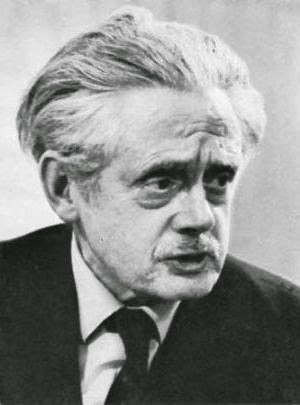 Another significant pre-war figure in politically incorrect Scottish nationalism was the celebrated Scottish poet, Hugh MacDiarmid (born Christopher Murray Grieve) a founder member of the National Party of Scotland, who in 1923, a year after Mussolini's rise to power in Italy, wrote two articles calling for a Scottish Fascism which would engineer as part of its programme a Scottish national revival and radical social justice across the country. MacDiarmid also set up a Scottish Fascist combat organisation called Clann Albainn which existed as an underground movement for many years, even after its founder finally embraced communism. Later, he would be expelled from the SNP because of his communist views. Upon joining the Communist Party, MacDiarmid, rather ironically, would eventually be expelled for his nationalist views!
Another significant pre-war figure in politically incorrect Scottish nationalism was the celebrated Scottish poet, Hugh MacDiarmid (born Christopher Murray Grieve) a founder member of the National Party of Scotland, who in 1923, a year after Mussolini's rise to power in Italy, wrote two articles calling for a Scottish Fascism which would engineer as part of its programme a Scottish national revival and radical social justice across the country. MacDiarmid also set up a Scottish Fascist combat organisation called Clann Albainn which existed as an underground movement for many years, even after its founder finally embraced communism. Later, he would be expelled from the SNP because of his communist views. Upon joining the Communist Party, MacDiarmid, rather ironically, would eventually be expelled for his nationalist views!
Like many European nationalists, including the Flemish, Breton and Ukrainian nationalists, along with nationalists closer to home in Wales and Ireland, MacDiarmid saw opportunities for Scottish nationalism in the advance of Nazi Germany and the possible unravelling of the British state following a German invasion of England.
In 1941, he wrote to a friend: "On balance I regard the Axis powers, tho' more violently evil for the time being, less dangerous than our own government in the long run and indistinguishable in purpose." A year earlier he had written: "If the Germans win they could not hold their gains for long, but if the French and British win it will be infinitely more difficult to get rid of them" and, as a result, he hoped for a quick Nazi victory in order to advance the Scottish nationalist cause.
Towards the end of his life, MacDiarmid became the President of the 1320 Club (the year of the Declaration of Abroath which reaffirmed Scotland's determination to remain independent of England at the time) which was the ultra-nationalist forerunner to the ethno-nationalist Siol nan Gaidheal 'ginger group' which rose to prominance in the seventies and eighties.
Arthur Donaldson, a future leader of the SNP between 1960 and 1969, just like MacDiarmid, hoped that an early Nazi victory over the British government would advance the Scottish nationalist cause. Along with a number of other leading Scottish nationalists, he was arrested in May 1941 because of his support of the Scottish Neutrality League and the suspicions of MI5 that some Scottish nationalists intended to set up a breakaway Scottish government in the event of a Nazi invasion of Britain and that Donaldson, according to MI5, was a potential leadar of this government and "Scotland's Quisling" in the making! Donaldson and his compatriots were arrested and held without charge under Defence Regulation 18B by the British state. He was held for six weeks, but was eventually released as the British authorities decided not to reveal the identity of the MI5 agent who had infiltrated them.
The report by the MI5 agent that prompted their arrest was later released after Donaldson's death and it included a conversation with Donaldson which prompted MI5's belief that he was a National Socialist sympathiser and a potential pro-German collaborator.
The report read:
 Another significant pre-war figure in politically incorrect Scottish nationalism was the celebrated Scottish poet, Hugh MacDiarmid (born Christopher Murray Grieve) a founder member of the National Party of Scotland, who in 1923, a year after Mussolini's rise to power in Italy, wrote two articles calling for a Scottish Fascism which would engineer as part of its programme a Scottish national revival and radical social justice across the country. MacDiarmid also set up a Scottish Fascist combat organisation called Clann Albainn which existed as an underground movement for many years, even after its founder finally embraced communism. Later, he would be expelled from the SNP because of his communist views. Upon joining the Communist Party, MacDiarmid, rather ironically, would eventually be expelled for his nationalist views!
Another significant pre-war figure in politically incorrect Scottish nationalism was the celebrated Scottish poet, Hugh MacDiarmid (born Christopher Murray Grieve) a founder member of the National Party of Scotland, who in 1923, a year after Mussolini's rise to power in Italy, wrote two articles calling for a Scottish Fascism which would engineer as part of its programme a Scottish national revival and radical social justice across the country. MacDiarmid also set up a Scottish Fascist combat organisation called Clann Albainn which existed as an underground movement for many years, even after its founder finally embraced communism. Later, he would be expelled from the SNP because of his communist views. Upon joining the Communist Party, MacDiarmid, rather ironically, would eventually be expelled for his nationalist views! Like many European nationalists, including the Flemish, Breton and Ukrainian nationalists, along with nationalists closer to home in Wales and Ireland, MacDiarmid saw opportunities for Scottish nationalism in the advance of Nazi Germany and the possible unravelling of the British state following a German invasion of England.
In 1941, he wrote to a friend: "On balance I regard the Axis powers, tho' more violently evil for the time being, less dangerous than our own government in the long run and indistinguishable in purpose." A year earlier he had written: "If the Germans win they could not hold their gains for long, but if the French and British win it will be infinitely more difficult to get rid of them" and, as a result, he hoped for a quick Nazi victory in order to advance the Scottish nationalist cause.
Towards the end of his life, MacDiarmid became the President of the 1320 Club (the year of the Declaration of Abroath which reaffirmed Scotland's determination to remain independent of England at the time) which was the ultra-nationalist forerunner to the ethno-nationalist Siol nan Gaidheal 'ginger group' which rose to prominance in the seventies and eighties.
"Scotland's Quisling"
|
|
| Arthur Donaldson |
The report by the MI5 agent that prompted their arrest was later released after Donaldson's death and it included a conversation with Donaldson which prompted MI5's belief that he was a National Socialist sympathiser and a potential pro-German collaborator.
The report read:
"During a long conversation, Donaldson gave great praise to Germany saying that England would be completely crushed by the early Spring; the Government would leave the country and that England's position would be absolutely hopeless, as poverty and famine would be their only reward for declaring war on Germany. Scotland on the other hand had great possibilities. We must, he declared, be able to show the German Government that we are organised and that we have a clear cut policy for the betterment of Scotland; that we have tried our best to persuade the English Government that we want Scottish independence and that we are not in with them in this war. If we can do that you can be sure that Germany will give us every possible assistance in our early struggle. The time is not yet ripe for us to start a visible campaign against England, but when fire and confusion is at its height in England, we can start in earnest. He then went on to tell them he had an idea in his mind for fixing up a wireless transmitting set in a thickly populated district in Glasgow or Edinburgh, in order to give broadcasts to the public. At the moment he is working very hard in an endeavour to combine all the Nationalists together as a unit, whereby they can strike out with great force when the time comes."After the war, during his leadership of the SNP, the party began to organise more professionally under his guidance and poll more credibly at elections which, as a result, culminated in the famous Hamilton by-election victory for the SNP in 1967. However, in 1969, Donaldson was replaced as leader of the party after a leadership challenge by the social democrat, Billy Wolfe, who helped pave the way for Alex Salmond's ascendancy in the party today.
Seed of the Gaels
Post-war, the flame of Scottish ethnic nationalism was mainly kept alive by Siol nan Gaidheal (SnG), which means in Scottish Gaelic - the Offspring or Seed of the Gaels!|
|
| Siol nan Gaidheal - kicked out of the SNP at the same time as Alex Salmond. |
This Scottish ethno-nationalist group was established in 1978 and paraded in blackshirts and kilts at Scottish Nationalist demonstrations and protests organised by the SNP and other groups. In 1982, SnG was proscribed from the SNP, along with the socialist 79 Group, which included Alex Salmond in its ranks though his expulsion was later overturned by the leadership. SnG went into a rapid decline after that setback but has subsequently been revived a number of times, most notably by Jackie Stokes, a militant ultra-nationalist, in the late eighties.
In the 1980s, SnG produced a magazine called Firinn Albannach (Truth of Scotland) which was described as being "anti-communist, neo-fascist and sometimes violent in tone" in a survey of British and Irish political groups conducted by liberal academics from Manchester University.
Originally published at Civil Liberty
In the 1980s, SnG produced a magazine called Firinn Albannach (Truth of Scotland) which was described as being "anti-communist, neo-fascist and sometimes violent in tone" in a survey of British and Irish political groups conducted by liberal academics from Manchester University.
Free Scotland
The Free Scotland Party, led by Brian Nugent, broke away from the SNP in 2004 over disagreements about the European Union (EU) and Scotland's future membership once independent. The party stood for an independent Scotland, independent of both the British state and the EU superstate, with Norway, an independent non-EU country, identified as a model for a future independent Scotland. The party contested a number of elections in 2005 and 2007 with Jim Fairlie, a former Deputy Leader of the SNP, standing as one of the candidates, but none were successful.A Scottish Future for Scottish Nationalists
Despite the current stranglehold on the party by 1968 leftists, the SNP is steeped in an ethno-nationalist tradition with roots that go back to its very origins and formation before the Second World War. Genuine Scottish nationalists now need to consider their position in Scottish politics. They must, in our opinion, unite and rally around a Scottish First-type organisation that can provide direction and meaning following independence which now seems highly possible, even if the NO campaign is temporarily able to halt the trend towards independence. It is obvious that the Tory/UKIP/BNP unionist position, bolstered by the religious sectarian cranks of the Orange Order, is no longer an option for serious ethno-nationalist activists and campaigners. The same logic also applies to the Scottish sovereignists of Free Scotland who should also be approached for their views on a possible realignment and amalgamation. In the meantime, we wish Scotland and its people well in their journey towards self-determination and freedom.Originally published at Civil Liberty



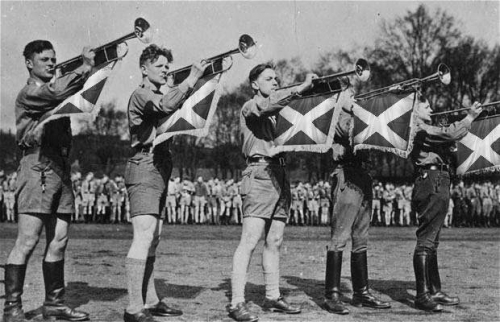
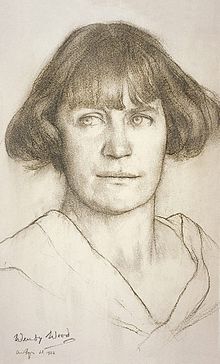
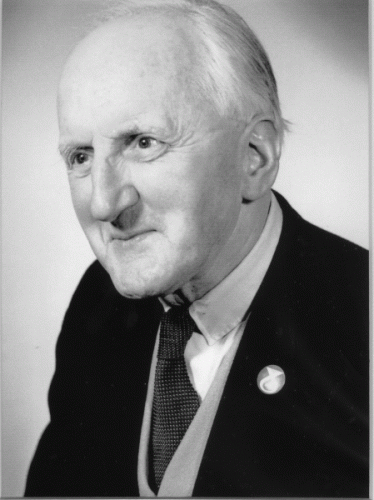
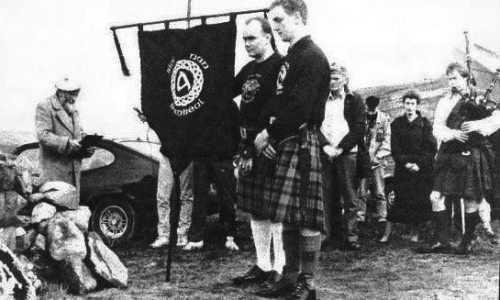

 del.icio.us
del.icio.us
 Digg
Digg
Les commentaires sont fermés.